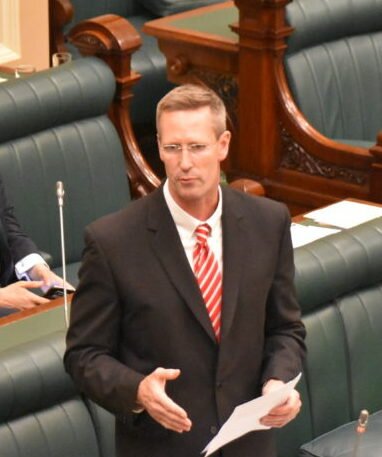Mr VAN HOLST PELLEKAAN ( Stuart ) ( 15:20 :49 ): Very unfortunately, we have just seen yet another victim of the state government’s failed energy policy. The Local Government Association of South Australia has announced that it expects its member councils to pay increases of between 30 and 50 per cent in their electricity prices in the 2017 year. I will read from page 33 of the Local Government Association’s budget submission to the government:
Like any business of scale, local government isn’t immune to electricity price cost pressures and two new energy (electricity) supply contracts negotiated by LGA Procurement on behalf of councils will see costs increase by 30-50% in 2017. These escalating costs will put pressure on council rates.
This is a terrible situation for South Australians. Not only is the state government’s energy policy pushing up electricity prices to all employers, all individuals and their households, but it is now flowing through to local government. What that means is that private people, in their own homes, are paying increased electricity prices. It also means that their council rates will go up because of increased electricity prices, and it also means that their employers are paying higher electricity prices.
The dreadful impact of that is that many of those employers who are facing higher prices are actually having to lay people off. It is very possible that people are at home facing escalating electricity prices, escalating council rates and unemployment—all because of the government’s failed energy policy pushing up electricity prices across our state. I say again, as I have said here many times, we must transition away from fossil fuels towards renewable energy, but that transition must be done in a well-planned and well-managed way, not in the overnight, overzealous, politically opportune way the government is pursuing at the moment.
The closure of the Port Augusta power station was a dreadful mistake by this government. I do not say that power station should have stayed open forever—far from it—but instead of the government flatly refusing the range of offers it received to keep the Port Augusta power station open it could have renegotiated those offers. Instead of just saying no, when asked by Alinta to help it stay open for 10 years or three years, or any of the other range of offers that was put, the government could have said, ‘Look, we’re not going to accept what you put to us, but we have a different proposal. We’re going to help you stay open for the right amount of time to be part of that sensible, well-planned and well-managed transition.’
However, the government rejected all those proposals out of hand and have made this problem much worse than it needed to be. It is important at this point to talk about the opposition’s rate capping policy. Let me be very, very clear: the government’s failed energy policy, which has increased electricity prices across our nation—not only spot prices but forward prices into the future—will require local councils to pay more for their electricity.
Under the opposition’s rate capping policy, those increased electricity prices would be part of the local government price index that is considered with regard to rate increase applications, keeping in mind that the opposition says that local government should not be allowed to increase their rates higher than the local government price index. These electricity prices would not disadvantage councils at all under a rate capping policy if the opposition were elected and put that in place after the election as a new government.
I come back to my point that, unfortunately, ratepayers will be dreadfully disadvantaged. They will be disadvantaged because their employers are under pressure. They will be disadvantaged if they happen to be employers themselves. They will be disadvantaged because their own household electricity prices are going up. Now we know that they will be disadvantaged because their council rates are going to go up. Whether it be household council rates or business premises council rates, they will now go up by 30 to 50 per cent due to the price of electricity.

